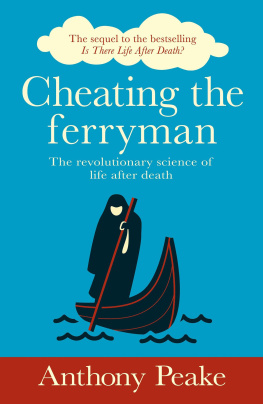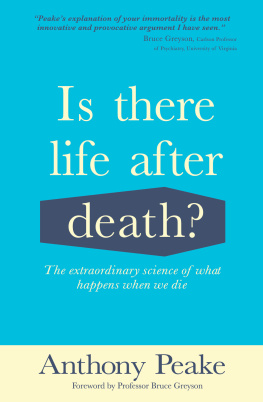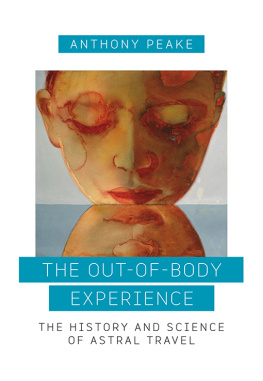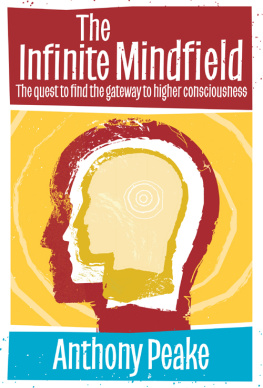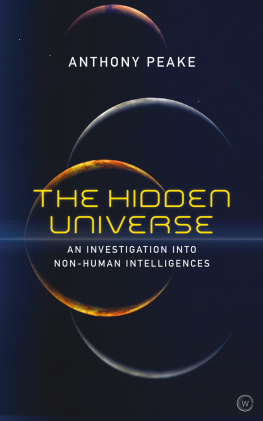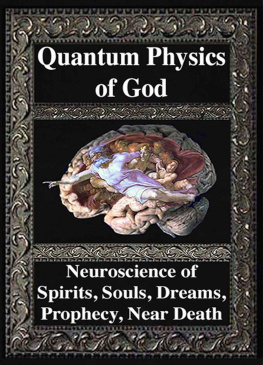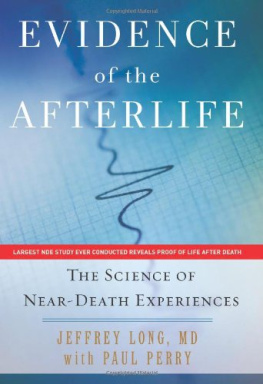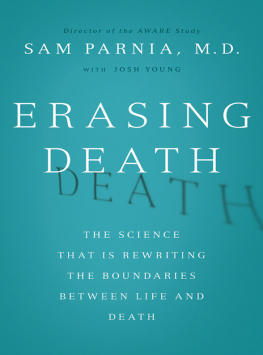Were it offered to my choice, I should have no objection to a repetition of the same life from its beginning, only asking the advantage authors have in a second edition to correct some faults of the first. So would I if I might, besides correcting the faults, change some sinister accidents and events of it for others more favorable.
Benjamin Franklin
Prologue
What happens when we die?
This is the ultimate question and one that has probably exercised human beings from the moment they became self-aware. Throughout the ages, various ideas and beliefs have engaged people. Although these have been numerous, they effectively come down to three options. These are:
1. You cease to exist.
This means that everything about you, all your hopes, dreams, loves, hates, are for nothing. You will never meet your loved ones ever again.
For billions of years, you did not exist, and for billions of years, you will not exist. In effect, something existed for a vanishingly small amount of time when considering the age of the universe. This something perceived something and then disappeared as if it never existed at all. It spent this small amount of time believing it had some form of inner existence, but, if modern science is believed, these perceptions were simply an accidental outcome of blind evolution, an epiphenomenon of brain processes.
There was no point to this life other than its short existence.
Morality and humanity have no meaning in this scenario. This life could have been lived in an orgy of brutality and nastiness or in a caring, loving way. The universe is totally indifferent to this. Indeed, in such a scenario, the only rational approach to this short life is a life of hedonism and self-gratification and/or suicide, which is the only way that such a creature can take any control in a deterministic and indifferent universe rapidly moving to a state of total heat-death.
Nothing matters and life is pointless. Then you die, and that is it.
2. You die and go to Heaven or Hell.
Heaven seems to consist of an eternity of worshipping God surrounded by other elect that is, those who through their actions on Earth have been rewarded with an eternity in Heaven, whose only motivation is to bask in the glory of this God.
Hell consists of eternal torments. Whether you end up in either place is decided by what you do with the vanishingly small amount of time you are allocated in the one and only life you ever have.
This life can be a hundred years or a hundred seconds; it matters not one jot how long you are given. That is it. There is no appeal and no chance to realize that you made mistakes in your life or any second chance to put things right. You had one chance, and you either got it right or wrong. Of course, right and wrong are at the whim of a deity who uncannily reflects the values of whichever society embraces that deity.
There used to be the concept of Purgatory whereby you could spend time regretting and atoning for the wrongs you did in your life. But there is still no chance to correct these mistakes or put into practice what you have learned from this one life. But you will live for all eternity in spirit form.
Eternity is a long time to just wander around Heaven. It is totally unclear if you are simply a disincarnate spirit for this eternity or whether you are in some form of body like you had in your earthly life. If you do have a body as you had, what age will that body be? Will it be 20 years old? 35? What about children who die? Will they grow old into an older body? Will this body be allowed to enjoy food, drink, sex? Some religions ban alcohol and certain foods. Indeed if these foods are meat-based, where will this food be sourced?
If we exist in spirit, then there are no such problems. We will all be disembodied somethings. If we are, how can we enjoy this eternity? We will never again taste food, enjoy a drink or have any form of physical contact with others. Indeed, all our loved ones (assuming that we can find these in this disincarnate existence) will be similarly disembodied somethings. Surely we know people from their physical bodies, their voices, their scent. None of these sensory factors will be available in this forever-and-ever scenario.
3. You get reincarnated into another body.
This body will be a totally new one, and it could be located anywhere on Earth. Why assume that you will be reincarnated as a human being in your own society and geographic location? This body may not be human; it could be an animal, a fish, or even an insect.
Indeed, why restrict it to Earth? Could you not be reincarnated on another planet? Could you be reincarnated as a plant? A microbe?
What about being reincarnated at a different time, in the deep past or the far future?
But lets assume that the rebirth takes place as most advocates of reincarnation believe that is, in a body and set of circumstances that reflect your actions in your previous life. If you have been a good person (whatever that means), you will be reincarnated into a higher level of human life (viz. the Caste System) or a lower level if you have been a bad person. Who or what actually decides this promotion or demotion is very unclear.
Even more unclear is by what process this transfer of a soul takes place. Indeed, the advocates of reincarnation also seem to be inconsistent as to where the new body will be located in relation to your location in your previous life. Are you reincarnated in your locality or miles away?
Similarly, different belief systems have different amounts of time between incarnations. Is it immediate, or does the soul exist in some kind of cosmic waiting room for an amount of time (if time can be said to exist in such an environment)? But lets ignore these logical issues. You get reborn as somebody else. When this happens, it seems that all your past life memories are wiped clean. You simply do not remember who you were before. So this new life, to all intents and purposes, is totally new. You are born as a new person in a new body. How can this still be you?
Surely what makes us us is our memories and our remembering of our life experiences. In a new body with a new brain (including new memory stores), the old you has ceased to exist. There is no part of you that remembers what you were before. But, we are told, there are some individuals who remember past lives. Why do they remember when the vast majority of incarnates do not? Why are they different? Others can remember past lives by being hypnotized.
How does this work? If the persons brain is a totally new one, how does it carry forward memories from any past lives? These memories are not located in the neurons, synapses, or other new brain parts. Again the question has to be asked why certain people can be regressed and others cannot.
But for me, the most critical issue is simply this: how can these lives ever be iterative or advancing? If I cannot remember my past lives and what I did in them and none of my life-lessons are remembered, then how can I learn from my mistakes? If every life is a new life with no continuity of memories from past lives, what is the point? Indeed what kind of system punishes or rewards somebody for actions they do not remember?
Surely the whole point is to learn and progress. I will not do that again because I recall how bad I felt the last time I did it. This does not take place in the classic reincarnation scenario. To all intents and purposes, this reincarnated entity has no relationship with the previous incarnation. They might as well be different beings.
I would like to suggest that there is a fourth alternative, one that is based on science, logic and simple common sense, one that also manages to explain a number of seemingly mysterious experiences such as precognition, dj vu, synchronicity, near-death experiences, out-of-body experiences, doppelgangers and spirit guides. It is called Cheating the Ferryman.
Next page
